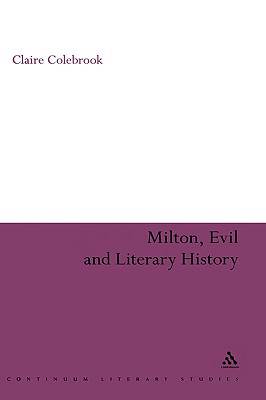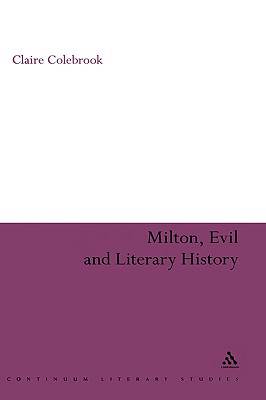
- Afhalen na 1 uur in een winkel met voorraad
- Gratis thuislevering in België vanaf € 30
- Ruim aanbod met 7 miljoen producten
- Afhalen na 1 uur in een winkel met voorraad
- Gratis thuislevering in België vanaf € 30
- Ruim aanbod met 7 miljoen producten
Zoeken
€ 373,45
+ 746 punten
Uitvoering
Omschrijving
Milton, Evil and Literary History addresses the ways in which we read literary history according to quite specific images of growth, development, progression, flourishing and succession. Goodness has always been aligned with a life of expansion, creation, production and fruition, while evil is associated with the inert, non-relational, static and stagnant. These associations have also underpinned a distinction between good and evil notions of capitalism, where good exchange enables agents to enhance their living potential and is contrasted with the evils of a capitalist system that circulates without any reference to life or spirit. Such images of a ghostly and technical economy divorced from animating origin are both central to Milton's theology and poetry and to the theories of literary history through which Milton is read. Regarded as a radical precursor to Romanticism, Milton's poetry supposedly requires the release of his radical spiritual content from the fetters of received orthodoxy. This literary and historical imagery of releasing the radical spirit of a text from the dead weight of received tradition is, this book argues, the dominant doxa of historicism and one which a counter-reading of Milton ought to question.
Specificaties
Betrokkenen
- Auteur(s):
- Uitgeverij:
Inhoud
- Aantal bladzijden:
- 168
- Taal:
- Engels
- Reeks:
Eigenschappen
- Productcode (EAN):
- 9780826484925
- Verschijningsdatum:
- 28/04/2008
- Uitvoering:
- Hardcover
- Formaat:
- Genaaid
- Afmetingen:
- 158 mm x 241 mm
- Gewicht:
- 403 g

Alleen bij Standaard Boekhandel
+ 746 punten op je klantenkaart van Standaard Boekhandel
Beoordelingen
We publiceren alleen reviews die voldoen aan de voorwaarden voor reviews. Bekijk onze voorwaarden voor reviews.








